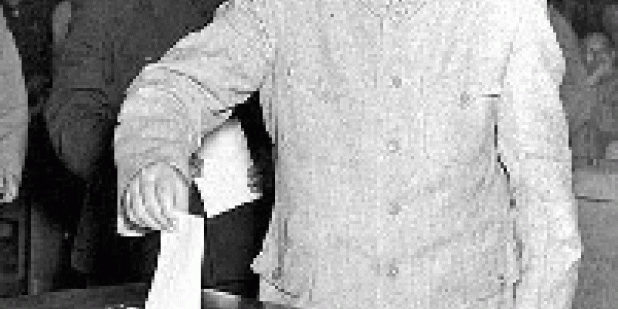Join us for a free one-day workshop for educators at the Japanese American National Museum, hosted by the USC U.S.-China Institute and the National Consortium for Teaching about Asia. This workshop will include a guided tour of the beloved exhibition Common Ground: The Heart of Community, slated to close permanently in January 2025. Following the tour, learn strategies for engaging students in the primary source artifacts, images, and documents found in JANM’s vast collection and discover classroom-ready resources to support teaching and learning about the Japanese American experience.
"Chairman Mao Can Vote and So Can We": A History of Elections as State-Building Rituals in Twentieth Century China
Stanford Center For East Asian Studies hosts a discussion of the role of elections in 20th Century China as a ritual rather than a right.
Where

Joshua Hill, Assistant Professor of History, Ohio University; Postdoctoral Scholar, Center for Chinese Studies, UC Berkeley
Elections have been an important part of mainland Chinese political culture for over a century. Beginning in the waning years of the Qing dynasty and continuing until the first decade of the People's Republic, Chinese governments devoted significant amounts of time and resources to the organizing of elections. Despite this, Chinese elections have generally been dismissed as charades because none of the regimes that ruled China in the twentieth century came to power through the ballot box. Instead, rulers expected these elaborately planned elections to serve an entirely different function: as ritual occasions for the training, education, and creation of citizens. The goal of voting was not to give voters the chance to change the government, but to give the government an opportunity to transform the electorate.
RSVP Required. Click here.
Featured Articles
Please join us for the Grad Mixer! Hosted by USC Annenberg Office of International Affairs, Enjoy food, drink and conversation with fellow students across USC Annenberg. Graduate students from any field are welcome to join, so it is a great opportunity to meet fellow students with IR/foreign policy-related research topics and interests.
RSVP link: https://forms.gle/1zer188RE9dCS6Ho6
Events
Hosted by USC Annenberg Office of International Affairs, enjoy food, drink and conversation with fellow international students.
Join us for an in-person conversation on Thursday, November 7th at 4pm with author David M. Lampton as he discusses his new book, Living U.S.-China Relations: From Cold War to Cold War. The book examines the history of U.S.-China relations across eight U.S. presidential administrations.




